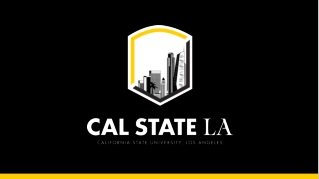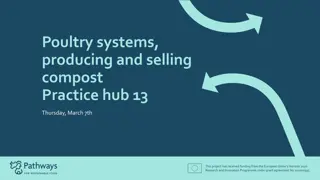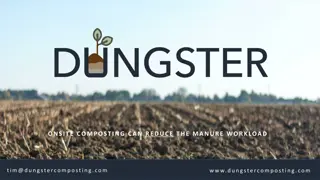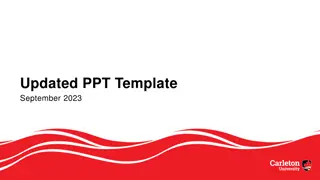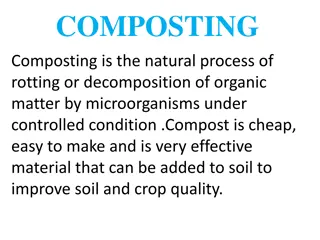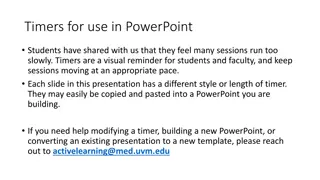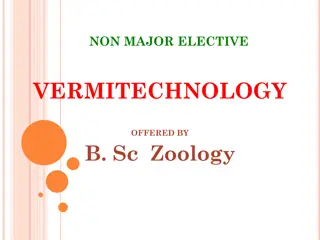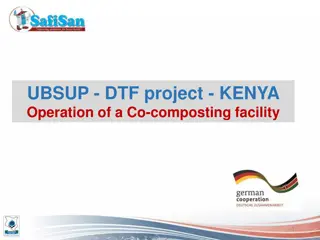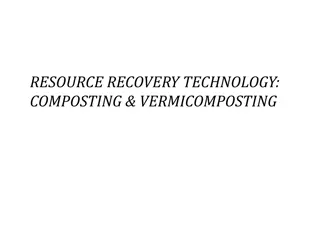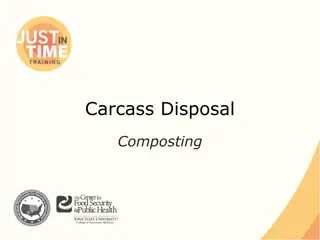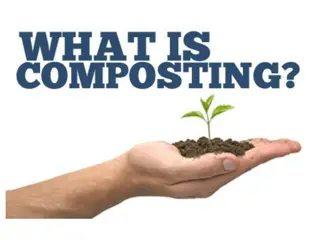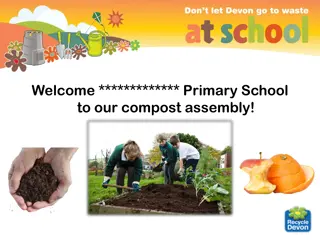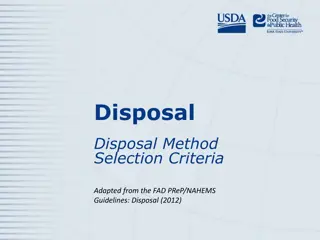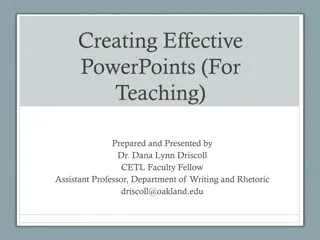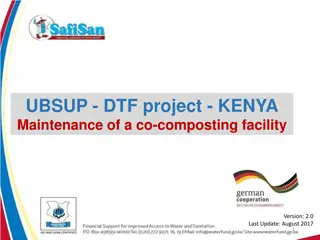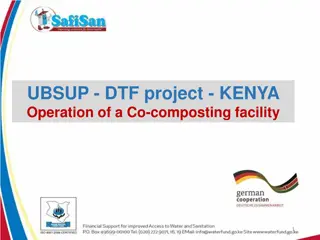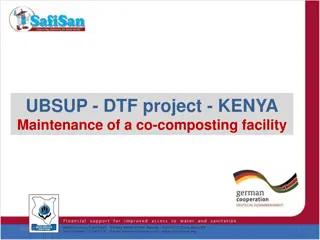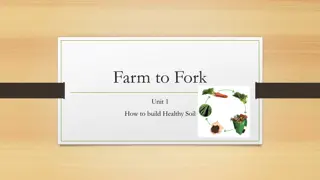
Maximizing Benefits of Composting for a Sustainable Future
Composting is a crucial practice that diverts food waste from landfills, reduces emissions, enriches soil, and conserves water. Through the use of advanced technology such as aerobic digesters, large volumes of organic materials can be efficiently processed. Proper management of composting programs ensures minimal odor, effective breakdown of diverse waste types including meat and dairy, and the avoidance of liquids to maintain optimal conditions for decomposition.
Download Presentation

Please find below an Image/Link to download the presentation.
The content on the website is provided AS IS for your information and personal use only. It may not be sold, licensed, or shared on other websites without obtaining consent from the author. If you encounter any issues during the download, it is possible that the publisher has removed the file from their server.
You are allowed to download the files provided on this website for personal or commercial use, subject to the condition that they are used lawfully. All files are the property of their respective owners.
The content on the website is provided AS IS for your information and personal use only. It may not be sold, licensed, or shared on other websites without obtaining consent from the author.
E N D
Presentation Transcript
Composting keeps food waste out of landfills and turns it into a fertile soil additive that helps plants thrive. The organic material is broken down through aerobic (oxygen-required) digestion, which reduces the overall volume and produces a nutrient-rich material that can be added to soil.
REDUCED EMISSIONS HEALTHY SOIL LESS IN LANDFILLS BETTER SAVES WATER PRACTICES Compost reduces methane produced by rotting organics. Composting diverts food waste from landfills. Organic material boosts the nutrient content of soils. Compost retains water and reduces chemical use.
Our composting program uses an aerobic digester, which allows us to process large volumes of food waste quickly and accept materials that are otherwise not compostable in backyard piles.
KITCHEN DISPOSAL PICKUP & TRANSFER IN-VESSEL DIGESTION CURING & COMPOST Kitchen staff dispose of food waste into provided bins. RSSW staff empties the bins into large totes and transfer into the machine. Wood chips are added to the food waste and begins to break down. Compost is removed from the machine and left to cure in piles.
PLASTIC FRUITS & VEGETABLES METAL MEAT LIQUID DAIRY BREAD & BAKED GOODS FATS & OILS COFFEE GROUNDS BONES >2 INCHES EGGSHELLS STICKERS PAPER GOODS RUBBER BANDS BIOPLASTICS WAX PAPER
Will there be a bad smell or pests? Collecting food waste regularly from the kitchens will keep the odor to a minimum. Once the food waste is transferred to the composter, there will be no odor produced thanks to the design of our digester. Pests will not be able to easily access the compost due to the shipping container vessel. I thought meat and dairy can t be composted. Most backyard piles or compost bays do not get hot enough to kill pathogens or break meat down. Our digester is designed to be able to process meat and dairy effectively. What does No Liquids mean? Compost needs to stay dry and aerated to fully break down. Small amounts of liquid are acceptable, but large volumes of soup, broth, or other liquids used in food preparation should not be poured into the bins.

